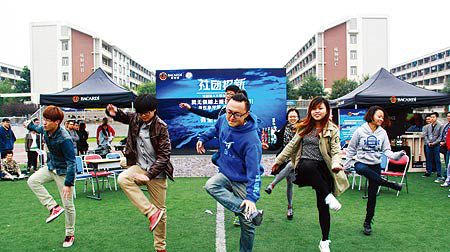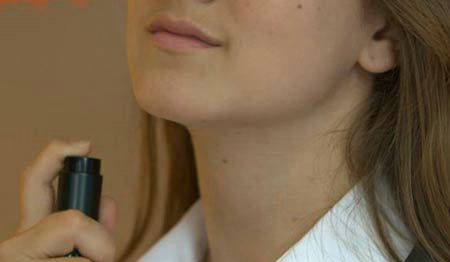大学生社团“进化论”
|
爱思英语编者按:高校社团为学生们的生活增光添彩。随着社团文化的日趋成熟,传统社团正在积极“变脸”,寻求突破;而许多新型社团更是满足了学生的各种需求。 Club diversity on rise
A few months ago, Yu Jianming was no different from other boys who spend most of their spare time playing sports. But now, the 18-year-old civil engineering major plays with paper, making cute animals and beautiful flowers. It’s all thanks to the club he participates in – the origami club of Chongqing University. Speaking of campus clubs, people usually think of conventional ones like roller-skating, cosplay or music clubs. But now, society and club culture is seeing more diversity, with students’ interests covering a wide spectrum. Yu joined the club a month ago after he saw a gigantic paper elephant on display at the society and club recruiting fair. “It was made by the club chairman, who’s my age,” says Yu. “His work aroused my interest in origami.” According to Yu, the club was formed by a group of students who love the art of origami. “Though I’ve never tried origami before, I’m impressed by their passion for it and I want to learn it myself,” he says. Functional clubs Other than treating societies and clubs as a way of recreation, some students now use them to broaden their horizons, help their studies, and prepare for a future career. Some societies and clubs like this include extra tuition clubs, straight-A student clubs, and start-up business clubs. Cui Ye, 19, is the co-founder of the straight-A student club at Beihang University. The economics major student wanted to improve her academic performance, so she set up the study club together with her friends. “The club has attracted dozens of students. We urge each other to study hard and initiate self-study activities after class,” says Cui. “I think the club has made studying less boring and difficult.” Strict management With more and more students participating in societies and clubs, a stricter management style has emerged. Leyuanzhifei, a cosplay club at Jilin Animation Institute, is one of the pioneers. According to Cui Xinyu, the chairwoman of the club, Leyuanzhifei operates as a studio rather than a club. “I joined the club three years ago when it was still operating as a club. But in the past two years the club has grown dramatically, both in scale and reputation. So we decided to set strict rules to maintain this momentum,” says Cui, the 22-year-old art and design major student. Now, members of the club cannot perform under the name of Leyuanzhifei unless they get permission from the club first. Also, members are not allowed to post photos of the club’s performances without approval. “Such mechanisms ensure the integrity and reputation of our club,” says Cui. |









